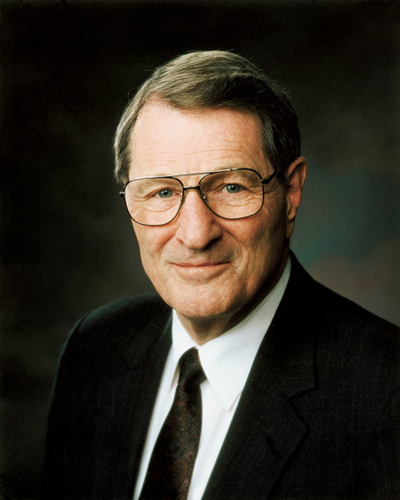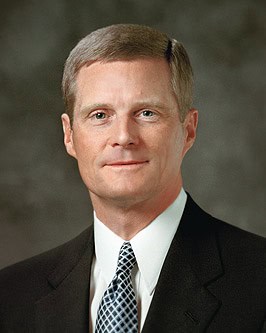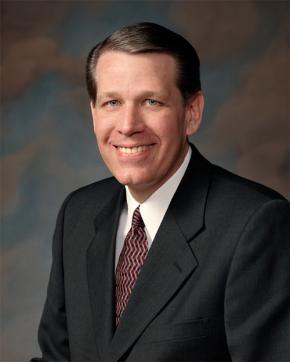Change
SEARCH BY TITLE
 Encircled in the Arms of His Love
Encircled in the Arms of His Love
Brothers and sisters, though living in a time of commotion, we can stand in holy places and not be moved. Though living in a time of violence, we can have that inner peace that passeth understanding. Perplexing things will still happen, but, like Nephi, we can still know that God loves us, a felicitous and fundamental fact which can and will sustain us through so much! How can we know that God is aware of us and loves us? He tells us by the scriptures—likewise, by our honestly counting the blessings and bestowals of His grace in our lives. Most of all, He tells us by the still, small voice of the Spirit! The “mighty change” required by discipleship may seem roller-coaster like, as soaring revelations bring the gravity of humbling perspective. It was so with Moses, who “fell unto the earth” and exclaimed, “Man is nothing, which thing I never had supposed” Then came, however, the divine, reassuring disclosure: “For behold, this is my work and my glory—to bring to pass the immortality and eternal life of man” “Mighty” changing, however, is mighty hard work, a labor made more difficult by heeding the unflattering urges of the natural man. Too often our possibilities have been muted by the mundane. We are scarcely ready for the vaulting revelations. Imagine—a spirit portion of each of us is actually eternal and that we were with God in the beginning! Of course we cannot fully comprehend all this right now! Of course we cannot know the meaning of all things right now. But we can know, right now, that God knows us and loves us individually!
 In the Strength of the Lord
In the Strength of the Lord
It is one thing to know that Jesus Christ came to earth to die for us. That is fundamental and foundational to the doctrine of Christ. But we also need to appreciate that the Lord desires, through His Atonement and by the power of the Holy Ghost, to live in us—not only to direct us but also to empower us. I think most of us know that when we do things wrong, when we need help to overcome the effects of sin in our lives, the Savior has paid the price and made it possible for us to be made clean through His redeeming power. Most of us clearly understand that the Atonement is for sinners. I am not so sure, however, that we know and understand that the Atonement is also for saints—for good men and women who are obedient and worthy and conscientious and who are striving to become better and serve more faithfully. I frankly do not think many of us “get it” concerning this enabling and strengthening aspect of the Atonement, and I wonder if we mistakenly believe we must make the journey from good to better and become a saint all by ourselves through sheer grit, willpower, and discipline, and with our obviously limited capacities. Brothers and sisters, the gospel of the Savior is not simply about avoiding bad in our lives; it also is essentially about doing and becoming good. And the Atonement provides help for us to overcome and avoid bad and to do and become good. There is help from the Savior for the entire journey of life—from bad to good to better and to change our very nature.
 What Manner of Men?
What Manner of Men?
However, this vastly increased accessibility to the voices of the Lord’s servants, which are the same as the Lord’s own voice, has little value unless we are willing to receive the word and then follow it. Simply stated, the purpose of general conference and of this priesthood session is fulfilled only if we are willing to act—if we are willing to change. Several decades ago I was serving as a bishop. Over an extended period I met with a man in our ward who was many years my senior. This brother had a troubled relationship with his wife and was estranged from their children. He struggled to keep employment, had no close friends, and found interaction with ward members so difficult he finally was unwilling to serve in the Church. During one intense discussion about the challenges in his life, he leaned toward me—as his conclusion to our numerous talks—and said, “Bishop, I have a bad temper, and that’s just the way I am!” That statement stunned me that night and has haunted me ever since. Once this man decided—once any of us conclude—“That’s just the way I am,” we give up our ability to change. We might as well raise the white flag, put down our weapons, concede the battle, and just surrender—any prospect of winning is lost. While some of us may think that does not describe us, perhaps every one of us demonstrates by at least one or two bad habits, “That’s just the way I am.” Well, we meet in this priesthood meeting because who we are is not who we can become. We meet here tonight in the name of Jesus Christ. We meet with the confidence that His Atonement gives every one of us—no matter our weaknesses, our frailties, our addictions—the ability to change. We meet with the hope that our future, no matter our history, can be better.
 Ye Must Be Born Again
Ye Must Be Born Again
This morning I want to discuss some of the spiritual lessons we can learn from the process by which a cucumber becomes a pickle. I invite the Holy Ghost to be with us as we consider the significance of those lessons for me and for you as we come unto Christ and are spiritually reborn. . . The Lord’s authorized servants repeatedly teach that one of the principal purposes of our mortal existence is to be spiritually changed and transformed through the Atonement of Jesus Christ. Alma declared: “Marvel not that all mankind, yea, men and women, all nations, kindreds, tongues and people, must be born again; yea, born of God, changed from their carnal and fallen state, to a state of righteousness, being redeemed of God, becoming his sons and daughters; “And thus they become new creatures; and unless they do this, they can in nowise inherit the kingdom of God”. We are instructed to “come unto Christ, and be perfected in him, and deny [ourselves] of all ungodliness”, to become “new creature[s]” in Christ, to put off “the natural man”, and to experience “a mighty change in us, or in our hearts, that we have no more disposition to do evil, but to do good continually”. Please note that the conversion described in these verses is mighty, not minor—a spiritual rebirth and fundamental change of what we feel and desire, what we think and do, and what we are. Indeed, the essence of the gospel of Jesus Christ entails a fundamental and permanent change in our very nature made possible through our reliance upon “the merits, and mercy, and grace of the Holy Messiah”. As we choose to follow the Master, we choose to be changed—to be spiritually reborn.
